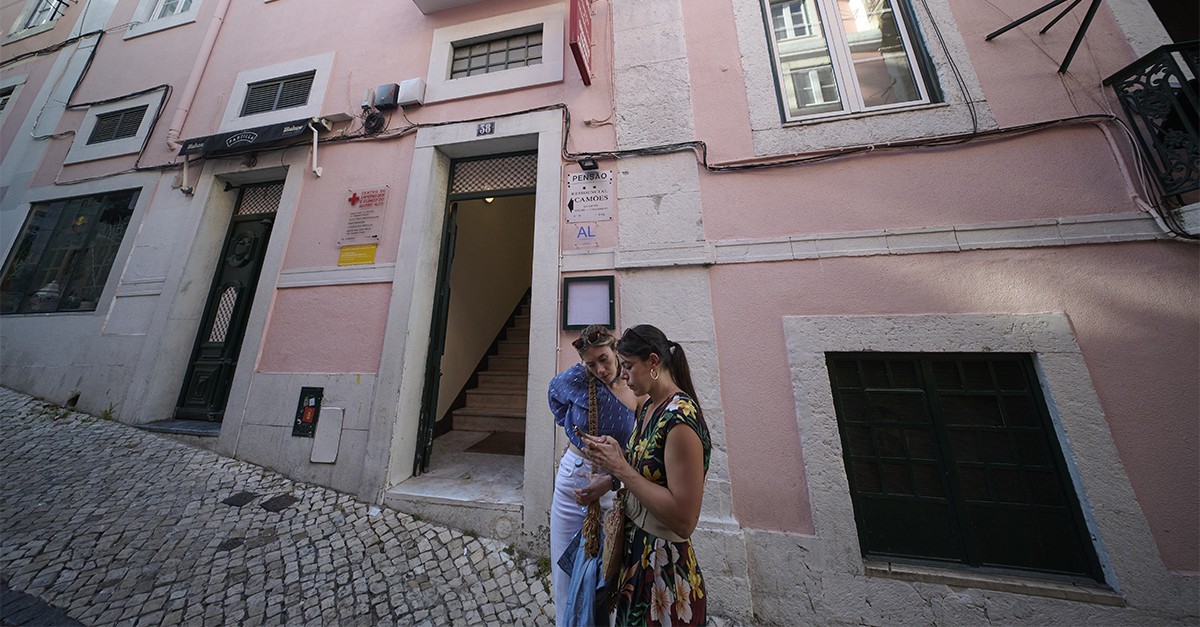
Portugal has risen from 10th to 8th place among EU countries with the highest accommodation prices in 2024. However, in February this year, the trend reversed, according to a study by CoStar.
In 2024, Portuguese tourist accommodation recorded an average revenue per available room (ADR) of €160.46, one of the key metrics in the sector that tracks price changes, according to data provided to Lusa by CoStar, a hospitality consultancy, based on Eurostat publications.
This figure represents a 6.8% increase, surpassing inflation, and places Portugal in the top 10 of markets with the highest hotel and tourist accommodation prices.
The top positions are held by Cyprus (€288.62), Greece (€230.11), Italy (€222.44), France (€183.96), Croatia (€175.85), Malta (€171.96), and Ireland (€169.32). Spain (€158.06) and Luxembourg (€149.85) complete the top ten.
However, the largest increases were seen in Russia (+15.2% to €97.27), Serbia (+12.9% to €126.27), and Greece (+12.4%). In contrast, Israel led the declines, with a drop in revenue per room of 9.5% to €226.98.
Portugal ranks 13th out of 43 countries
Looking at the full list of 43 European countries in the CoStar study, which includes the UK, Switzerland, and Russia, for example, Portugal ranked 13th, up two places from 2023. In this ranking, Monaco leads (€572.74), followed by Iceland (€292.33), Cyprus, Switzerland (€262.08), and Greece.
However, when analysing the most recent data from February this year, which corresponds to the off-peak tourist season, Portugal's position reversed, falling nine places to 22nd, with €108.88. Nevertheless, this figure represents a 1.6% increase in revenue per available room compared to the same period last year.
These figures align with a trend recently highlighted by Cristina Siza Vieira, Executive Vice President of the Portuguese Hotel Association (AHP), who noted that the sector is growing more in value than in occupancy rate.
“We’re growing more in value than in occupancy rate. These aren’t the growth rates we saw up to 2022, after the pandemic. In 2023, there was a slowdown in growth, and in 2024, we see a similar trend,” she said last week during the presentation of a survey by AHP to its members.
According to the same study, 56% of respondents expect better revenues this year, while 33% anticipate revenues similar to those of 2024.
Among the factors making the sector more cautious about 2025, Cristina Siza Vieira highlighted the uncertainty surrounding US commercial policies, which could have global impacts, such as a likely slowdown in US tourism demand. However, this could be offset by domestic demand within Europe and other markets such as Asia.
North Americans attracted to Portugal
US tourists have contributed to the growth of the sector in Portugal.
Last year, 5.1 million of the overnight stays by non-residents in Portugal were by tourists from the US, representing a 12% increase compared to 2023 and about 9% of the total, which surpassed 56 million (+4.7%), according to data from the National Statistics Institute (INE).
The UK, with over 10 million overnight stays, Germany with 6.3 million, and Spain with 5.4 million, occupy the top three spots.
